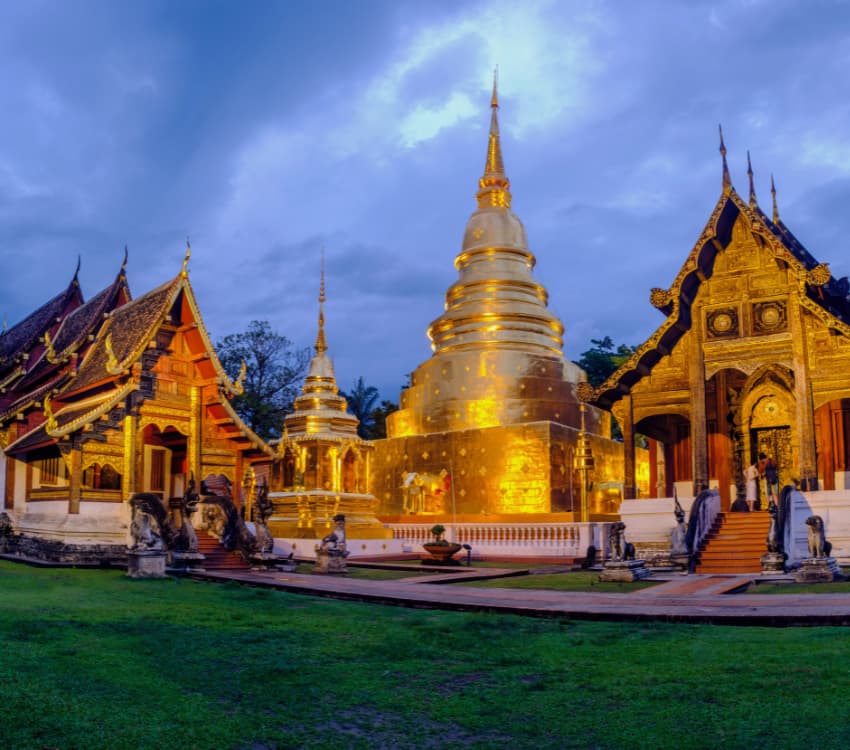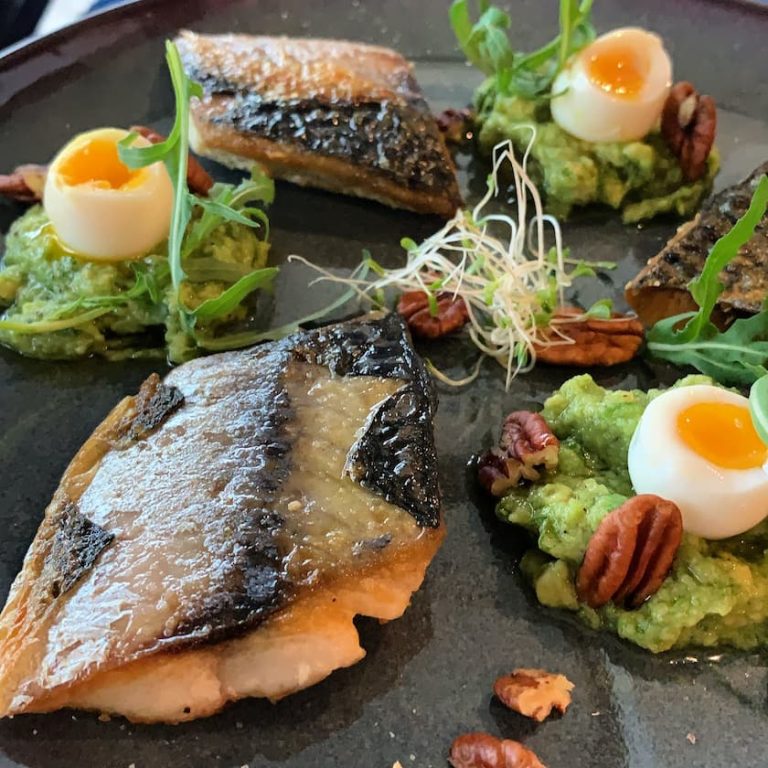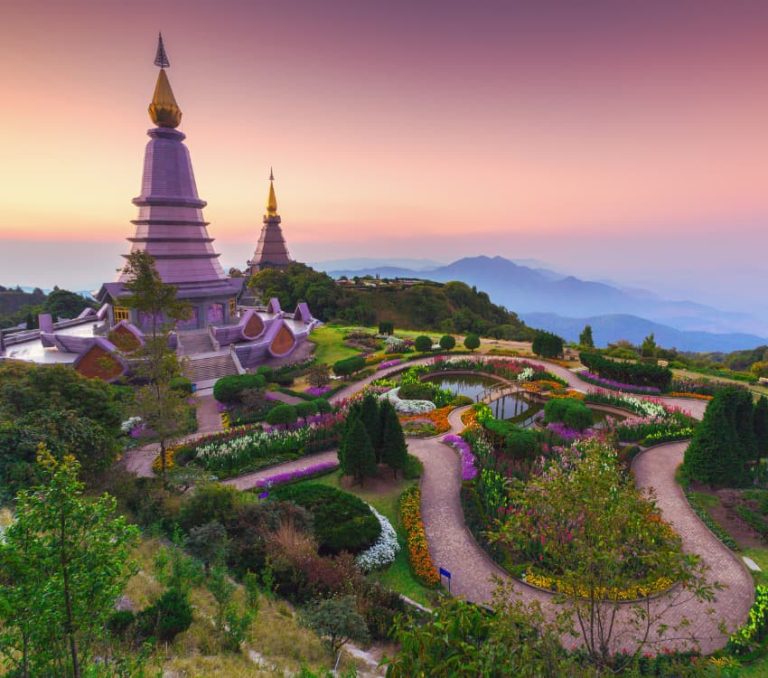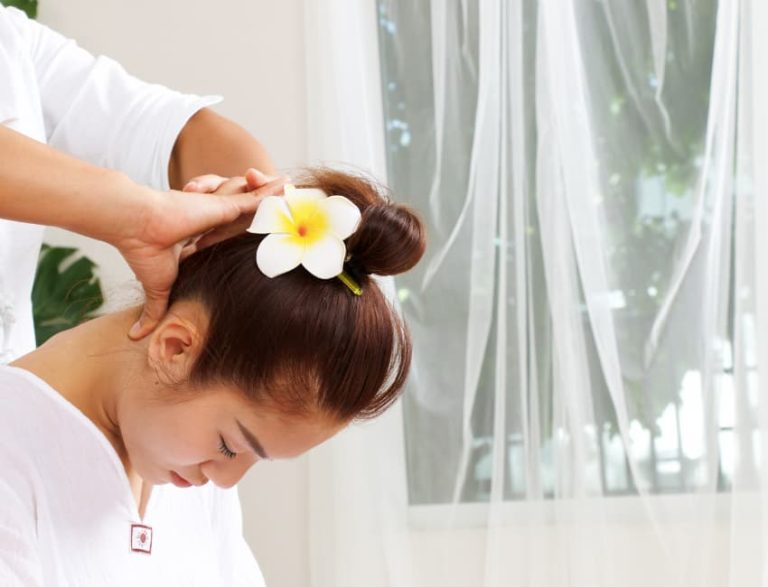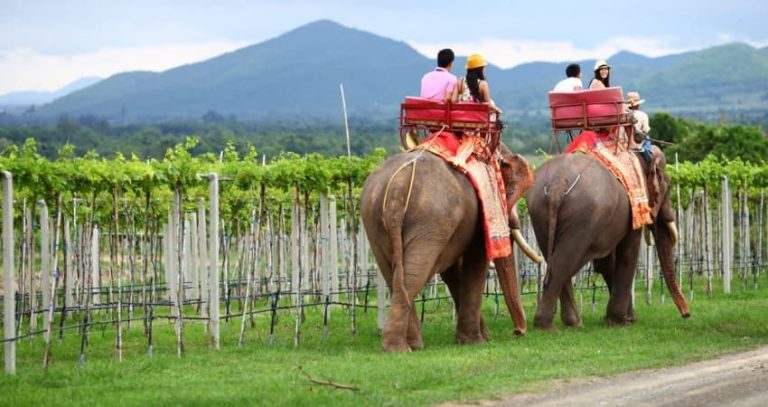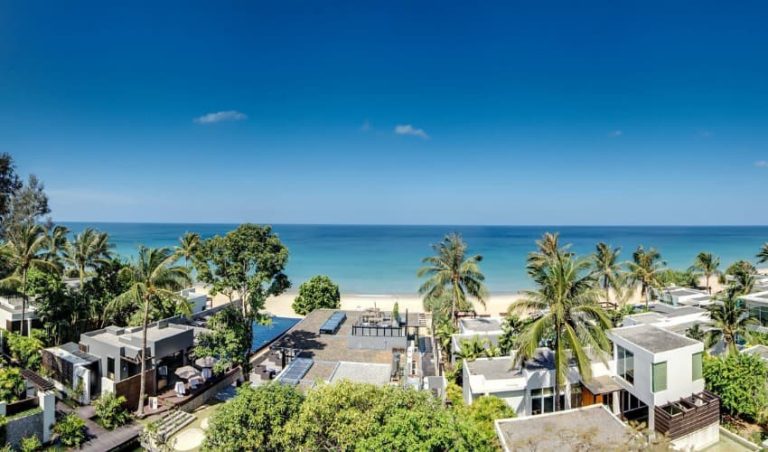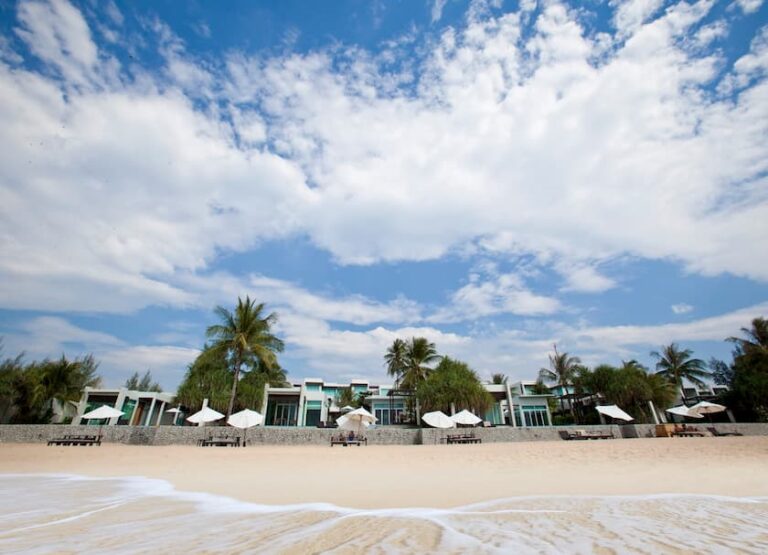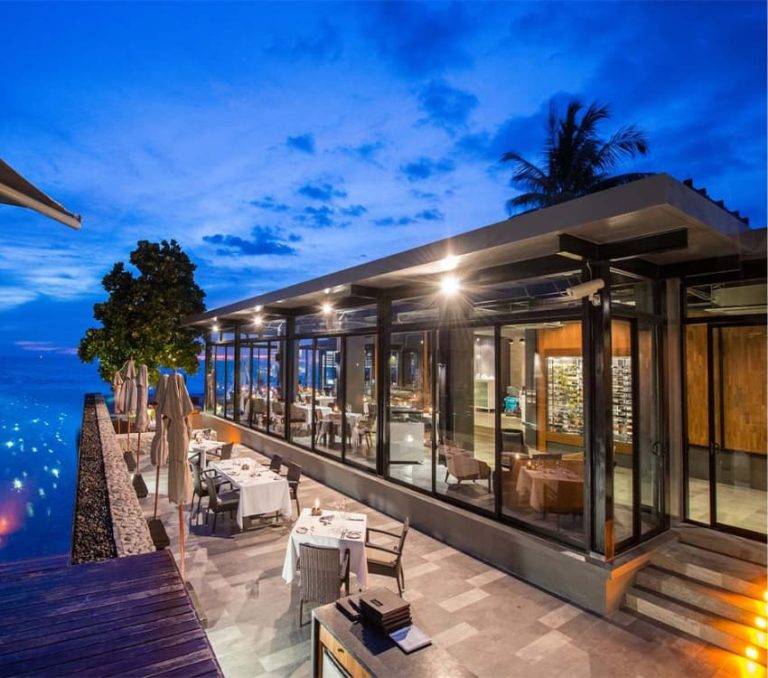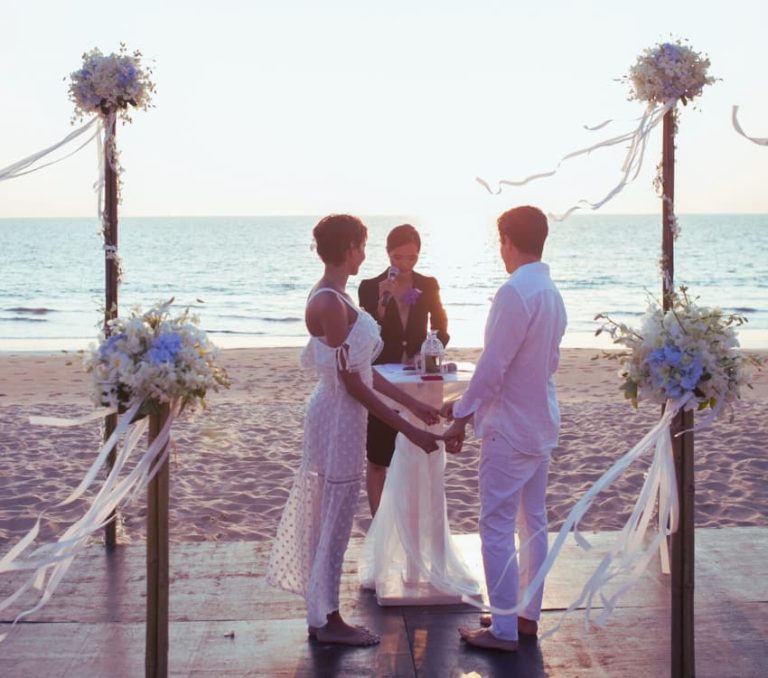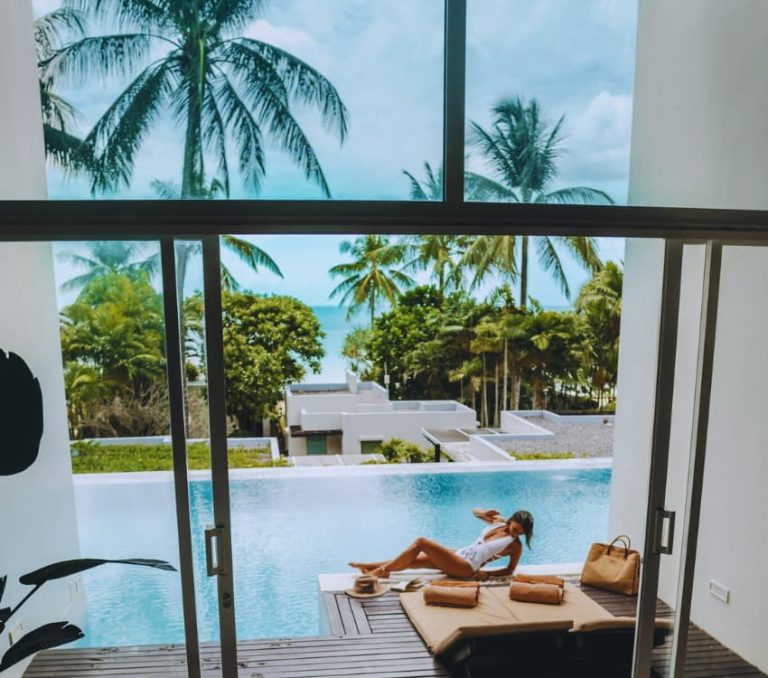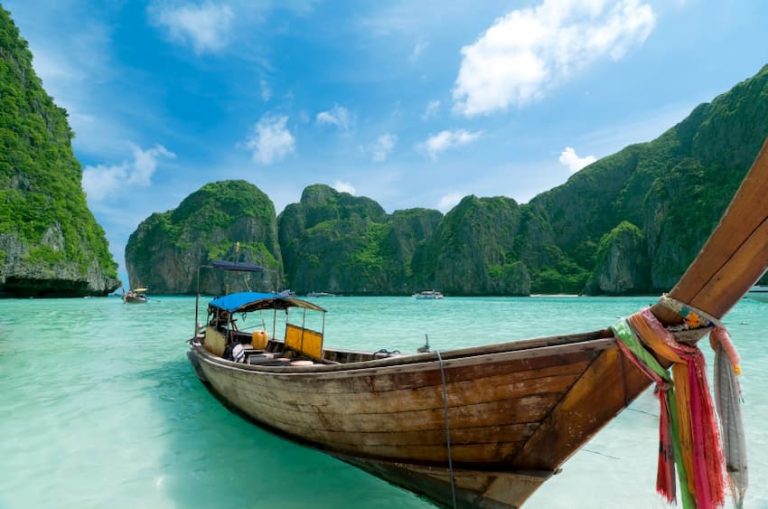Chiang Mai, often called the “Rose of the North,” is not just a destination but a cultural treasure trove that offers visitors a chance to immerse themselves in centuries-old traditions, rituals, and values. Its serene temples, vibrant festivals, and welcoming locals form the heart of its cultural identity. At Aleenta Retreat Chiang Mai, we celebrate and honour these customs, inviting you to experience the city’s traditions with authenticity and warmth.
The Essence of Thai Customs
Thai culture is steeped in a harmonious blend of respect, humility, and joy. These core values influence daily interactions and provide a glimpse into the philosophy that shapes Thai society.
- The Spirit of Respect
In Thailand, respect is integral to all social exchanges. From elders to monks and even the Royal Family, Thais uphold a deep sense of reverence. This respect is woven into everyday life, where even the national anthem, played at 8am and 6pm in public spaces, is met with silent attention.
- The Wai Gesture
The wai—a prayer-like gesture accompanied by a bow—is a hallmark of Thai etiquette. It serves as a greeting, a way to say thank you, or an apology. The higher the hands and the deeper the bow, the greater the respect conveyed. For example, when addressing monks or elders, the wai is performed with thumbs touching the eyebrows.
- “Mai Pen Rai” – The Thai Philosophy
This phrase, meaning “no worries,” embodies the Thai approach to life. It reflects an easy-going and patient mindset, helping people maintain composure even in challenging situations.
Exploring Chiang Mai’s Temples
Chiang Mai is home to over 300 Buddhist temples, each offering a serene space for reflection and spiritual connection. Visiting these temples is not only a visual delight but also an opportunity to engage with local customs.
- Temple Visits
Dressing appropriately is essential. Before entering the sacred space, shoulders and knees must be covered, and shoes must be removed. As a gesture of respect, it’s customary to bring offerings, such as flowers, incense, or small donations.
- Wat Phra That Doi Suthep
Perched on a mountaintop, this iconic temple is a must-visit for its stunning golden spire and panoramic views of Chiang Mai. Walking up the 300-step serpent staircase is a symbolic journey leading to a courtyard filled with serene Buddhas, bells, and murals.
- Wat Chedi Luang
Known as the “Temple of the Great Stupa,” this 14th-century structure holds deep historical significance. Despite partial damage from an earthquake, its grandeur remains intact, making it a revered landmark.
Festivals that Illuminate Chiang Mai
Chiang Mai is a city of celebration, with festivals that reflect its vibrant spirit and deep-rooted traditions.
- Loy Krathong and Yi Peng
Held in November, these festivals are the epitome of beauty and symbolism. While Loy Krathong involves floating decorated baskets on rivers to pay homage to the water goddess, Yi Peng lights up the night sky with thousands of lanterns.
- Inthakin Festival
Unique to Chiang Mai, this May festival honours the city pillar. It features merit-making ceremonies, flower offerings, and a procession of a sacred Buddha image through the streets.
- Songkran
Songkran is a joyful water festival celebrated in April, marking the Thai New Year. While it’s celebrated across Thailand, Chiang Mai hosts one of the most exuberant and traditional versions, combining water fights with temple rituals.
Unique Chiang Mai Customs
Chiang Mai offers more than grand temples and festive celebrations—it’s also a place where day-to-day traditions enrich the cultural landscape.
- Colourful Days of the Week
In Thailand, each day is associated with a specific colour. This practice is rooted in Hindu beliefs and adds a vibrant touch to daily life. For example, yellow is worn on Mondays to honour the King, while Fridays are celebrated with shades of blue for the Queen’s birthday.
- Bargaining
Markets in Chiang Mai, such as the Sunday Walking Street, are not just shopping destinations; they’re cultural experiences. Bargaining is expected, and a friendly smile can go a long way in securing a good deal. Start with a reasonable offer, and remember, the goal is to make the interaction enjoyable for both parties.
Food and Community in Thai Culture
Dining in Chiang Mai is as much about sharing as it is about savouring. Meals are communal affairs, with several dishes served for everyone to enjoy. A typical meal includes soups, spicy curries, and fresh vegetables, all centred around rice.
For an immersive experience, partake in a Khan Tok dinner. These traditional northern Thai meals are served on a pedestal tray and accompanied by classical dance performances.
Try a Khan Tok Dinner at:
- Old Chiang Mai Cultural Centre: Known for its authentic atmosphere and vibrant performances.
- Khum Kantoke: Offers a variety of menus, including halal and vegetarian options, in a charming open-air setting.
Chiang Mai’s Living Heritage
Chiang Mai’s customs and culture are not static relics of the past but living traditions that adapt and thrive. They are evident in the kindness of its people, the artistry of its crafts, and the wisdom of its spiritual practices.
At Aleenta Retreat Chiang Mai, we encourage our guests to embrace this rich heritage. Whether exploring a bustling market, marvelling at a temple, or simply sharing a meal, every moment in Chiang Mai is an opportunity to connect with its heart and soul.
Your Invitation to Experience Chiang Mai
From its intricate customs to its warm-hearted people, Chiang Mai offers a cultural experience like no other. At Aleenta Retreat Chiang Mai, we are committed to providing an authentic and enriching stay where the region’s beauty meets the luxury of our hospitality.
Related Articles
- Travelling To Chiang Mai
- Chiang Mai a City of Art
- Loy Krathong “Festival of Lights” in Chiang Mai
- The Colours of Chiang Mai
- Songkran Festival in Chiang Mai
Aleenta Retreat
Chiang Mai
Chiang Mai
189 Soi Ban Mai Lang Mo 18,
Suthep, Muang Chiang Mai District,
Chiang Mai 50200
T: +66 (0)52 090 333

